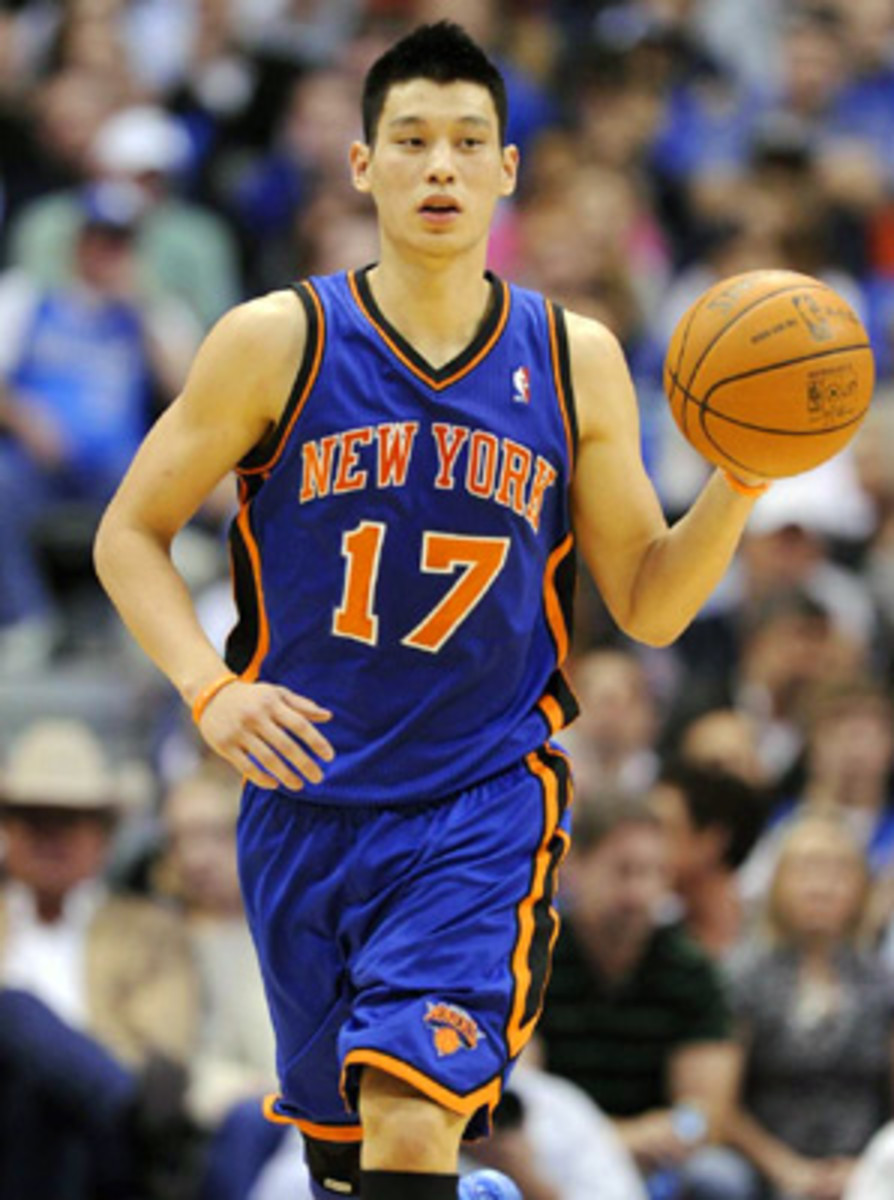By letting Lin walk, Knicks might make right call for wrong reason
***
It did not make sense. That was the beauty of Linsanity, wasn't it? None of it made sense. It was five layers of impossible. Jeremy Lin went to Harvard, where he never even played in the NCAA tournament, never even won Ivy League Player of the Year. Two teams had cut him. The Knicks had glued him to the bench. His team was dysfunctional. His sport is notorious for anointing future All-Stars in high school, and here was Lin, who made it all the way to the pros without anybody thinking he was special.
And yet, there he was, looking, for all the world, like something that does not really exist: an instant star.
He scored 25 points off the bench against the Nets. He scored 28 points two nights later, in his first start. On the night of Feb. 10, Linsanity became an international phenomenon. I was in a hotel room in Syracuse at the time, working on a story about Syracuse basketball. If you travel at all for work, you know the feeling: Sitting in a hotel room in a strange city -- not even in the city, but on the outskirts of it, near a highway. The skies seemed grayer than they were. The minutes seemed slower. It felt like the opposite of home.
I would like to say I turned on the Knicks-Lakers game to get a glimpse of Linsanity, but the truth is that I turned on the Knicks-Lakers game to watch the end of Linsanity. I've watched too much basketball in my life to believe those first two box scores. Surely, the Lakers would pop the balloon.
Jeremy Lin scored 38 points on 23 shots that night, and by the end, he was pulling up for three-pointers that seemed like layups. He was the last kid on the bench suddenly becoming the best player on the floor. That is fantasy stuff in high school, let alone the NBA.
Most of what we see in sports makes some sense. Mike Trout is doing incredible things as an Angels rookie, but most people who saw him in the minor leagues thought he would do incredible things. The apparent ups and downs of the Miami Heat in the past two years were not really all that up and down -- Miami lost the Finals in six games one year and won the title a year later. Baseball players hitting 70 home runs did not make sense, until eventually it made complete and depressing sense.
We live in an age of advanced stats and everything on video, of hyper analysis and an explanation for everything. We are often surprised by sports (this is the biggest reason we watch) but usually we can explain what happened later.
Jeremy Lin was an indoor rainbow, a magician that baffled everybody. Linsanity did not make sense.
***
It makes sense. The Knicks are letting Jeremy Lin go. The employer in New York has a budget, and the young man from Harvard does not fit that budget. The Rockets set up the contract so the Knicks wouldn't match it -- it is back loaded, so the Knicks would pay an enormous luxury tax in year three. And when Knicks coach Mike Woodson said his team would match anyway, Lin and the Rockets restructured the deal so the Knicks would change their mind.
There are people in the NBA who think Lin is a backup, and others who think he is just a fringe starter. If they are right, then the Knicks may be doing the right thing for the wrong reason. This is actually an improvement for the Knicks, who usually do the wrong thing for the wrong reason.
Knicks owner James Dolan is notorious for making decisions out of personal feelings, anger and insecurity. When Lin restructured the deal, Dolan probably saw it as an act of disloyalty, which is stupid. The Knicks weren't loyal. This is pro sports. Very few people are loyal. Once in a while a player and team will continually agree on contract terms to create the illusion of loyalty. But mostly, it's every man for himself.
***
Does it make sense? Lin is not terribly quick and not really a deadly outside shooter, despite what we saw against the Lakers. (He shot 32.3 percent from three-point range this year.) He is terribly turnover-prone. I see why smart people think he is a backup. It is normally foolish to let a player leave as a restricted free-agent -- you match the contract, keep the asset and trade him later if you'd like. But this contract could cripple a team in two years.
And yet ... most of the criticisms of Lin are based on conventional NBA scouting information: speed, specific skills, and preconceived notions about who Lin was. Scouts don't look for magic. I want to believe that Lin is a point guard with a special feel for playing in a certain kind of offense, at a certain pace, and that we will see him blossom into an All-Star. I want to believe in Jeremy Lin. As a writer and basketball fan, I think I do believe in him. But I don't have to sign the check, and Jeremy from Harvard is not my employee.





